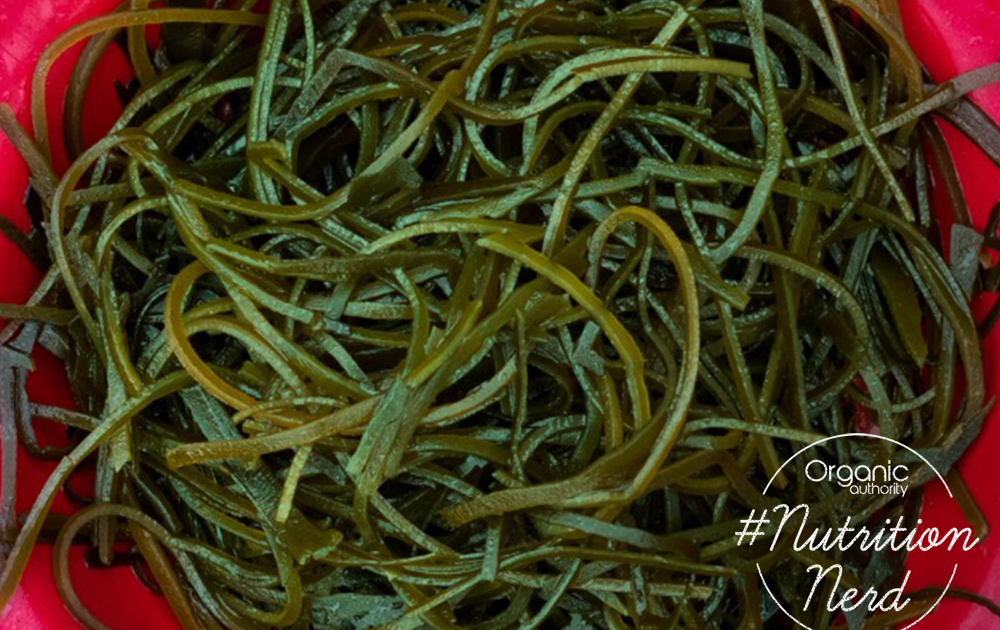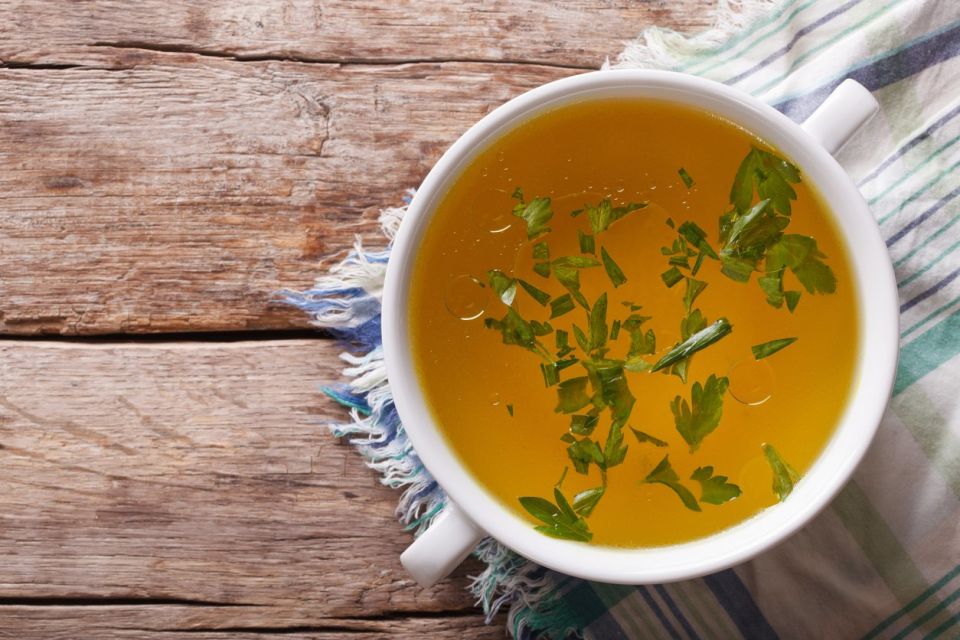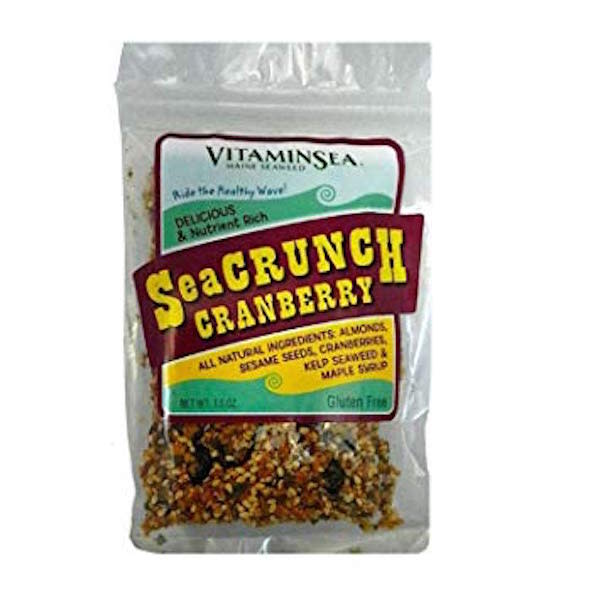Seaweed is the Superfood You Need This Winter
Is it time to add seaweed to your diet?

Seaweed has been trending and it’s not hard to see why. Sea vegetables are full of anti-inflammatory and anti-microbial benefits, not to mention tons of great flavor. With a plethora of seaweed recipes and snacks suddenly coming into the spotlight, now is the time to branch out from sushi nori and enjoy seaweed in new and exciting ways.
Of course, not all seaweed is created alike. Most experts divide seaweed varieties into four basic groups:
- Brown seaweed, like kelp
- Green seaweed, like sea lettuce
- Blue-green seaweed, like spirulina
- Red seaweed, like dulse
Each brings a host of health benefits to the table.
3 Reasons to Eat Seaweed This Winter
Winter is the prime time for getting sick, but seaweed can help keep you healthy by boosting immune health, gut health, and more.
1. Seaweed is Rich in Vitamins, Minerals, and Antioxidants
Vitamins and antioxidants are some of the best natural boosters for your immune system, and seaweed is chock full of them.
“In addition to containing vitamin C, E, and A (which are rich in antioxidants), seaweed also contains flavonoids and carotenoids that protect the body from environmental pollutants,” explains Caleb Backe, Health & Wellness Expert for Maple Holistics. “This makes seaweed a great superfood for this winter to help protect your immune system and strengthen your body from within.”
Ysabel Montemayor, lead Registered Dietitian at Fresh n’ Lean, notes that blue-green and green seaweeds like spirulina and chlorella are particularly rich in essential amino acids and antioxidants. These blue-green seaweeds are also rich in some substances that are hard to find in land-based plant sources, like omega-3 fatty acids and Vitamin B12, so vegans, take note!
Sea vegetables are also rich in minerals – unsurprising since they hail from the salty, mineral-rich sea! Minerals like calcium, magnesium, and iron are abundant in seaweed, as is iodine, a mineral that land vegetables lack but that many people – particularly women – don’t get nearly enough of.
Integrative medicine Doctor Elizabeth Trattner notes that as more and more women are being diagnosed with hypothyroidism and Hashimoto’s, focusing on iodine, which improves thyroid health, could be helpful. It’s also yet another compound that’s tough to find from other plant-based sources.
2. Seaweed Can Help Detox Your Body
“Some sea vegetables are very detoxifying,” explains Tina Marinaccio MS RD CPT, Integrative Culinary Registered Dietitian Nutritionist Health Dynamics LLC. She notes that kombu, especially, helps the body to detoxify from heavy metals.
The Guardian even reports that seaweed “mops up the toxins cadmium and lead.” These substances, present in cigarette smoke but also in the environment due to pollution, can be quite harmful, so seaweed is a great way for urbanites especially to promote health and wellness.
3. Seaweed is Great for Your Gut and Your Brain
Red seaweed has been proven to help promote gut function and healthy microbiota, which is essential for whole-body and brain health.
In his “Genius Foods,” Max Lugareve delves into the brain-gut connection, showing the ways in which a healthy gut contributes to healthy brain function, and studies have shown that promoting gut health is one way to help improve anxiety, depression, or other mood disorders.
One 2015 study in Complementary Therapies in Medicine showed that chlorella, specifically, promotes a “significant” reduction in symptoms of people with depression
“This makes seaweed an ideal superfood to add to your diet if you’re suffering from SAD this winter,” notes Backe.
Seaweed “Bone Broth:” A Delicious Oxymoron
Bone broth is all the rage, thanks to a host of amino acids and other compounds found in bones. But for plant-based eaters, seaweed may be a great alternative: rich in substances that are often only found in animal sources like omega-3 fatty acids, vitamin B12, and iodine, seaweed also brings a rich, umami flavor to soups, stews, and broths.
“A miso and seaweed broth has been longstanding in Asian diets,” explains Trattner. “Miso and seaweed have good bacteria, fiber, micronutrients and help immunity so as a vegan ‘bone broth’ this is an excellent combination.”
While bone broth does tend to be a richer source of amino acids and collagen than seaweed broth, food scientist Kantha Shelke tells NPR that it’s better for your body to produce its own collagen anyway.
“Eating a diet rich in leafy green vegetables is ideal,” she says. Plants offer richer sources in collagen building blocks and, in addition, provide nutrients not found in sufficient quantities in meats or broth.”
The healing benefits combined with the rich warmth of a cup of homemade broth makes the seaweed-based bone broth the ideal plant-based superfood for winter health.

Vegan Bone Broth
This broth combines wakame with other great collagen-promoting ingredients like celery, soybeans, kale, beets, spinach and olive oil. The result is nourishing and delicious – perfect for a cold winter evening.

Gut-Healing Seaweed Bone Broth
This recipe, with wakame, shiitake mushrooms, turmeric, ginger, and coconut oil, is perfect for helping heal your gut. It also calls for using whatever veggie scraps you happen to have around the kitchen, cutting back on food waste.
Seaweed Brands We Love
Ready to dish up some seaweed? Here are the brands we love.

SeaSnax
SeaSnax produces several different seaweed products, including a sea vegetable mix containing Agar, Wakame, Suginori, and Tsunomata – the perfect base for a rich, hearty sea vegetable broth. The company also produces several snack foods containing seaweed, including certified organic options: nori sheets simply flavored with salt, lime, chipotle, wasabi, and more. Nori is one of the richest sources of protein in the sea vegetable family, making this a nourishing, healthful snack to take on the go.

VitaminSea
This small, family-owned company in Maine produces responsibly harvested, certified organic seaweed, with a large variety of whole leaf sea vegetables, flakes, and granules. The company also produces SeaCrunch kelp snacks, a slightly sweet bite made with nuts, seeds, local fruit maple syrup, and a touch of chocolate.

Ocean’s Balance
Another Maine-based seaweed producer, this company prides itself on its zero-input farming methods that help “maintain the delicate balance of marine ecosystems.” A wide variety of products including kelp puree, seaweed sprinkles, seaweed flakes, and whole leaf sea vegetables are on offer.
Do you eat seaweed? Leave a comment below!
Related on Organic Authority
10 Delicious and Healthy Uses for Seaweed
4 Superfood Seaweed Recipes to Love for Meatless Monday
Seaweed 6 Ways: Salads, Snacks, Smoothies, and a Skin-Renewing Facial!
Note! This article contains affiliate links that are independently sourced and vetted by our editorial team which we may earn a commission on. This helps us reduce the number of ads we serve on Organic Authority and help deliver you a better user experience. We are here to help you navigate the overwhelming world of consumer products to source and uncover thoughtfully made, conscious clean products for you and your family.

